
Celsius Research Group
Celsius is a DCU research group studying Cultural, Ethical, Legal and Social Issues in Science. It is an interdisciplinary group bringing together researchers from a range of academic and professional backgrounds who analyse from various perspectives issues and implications of current developments in science, technology, environment and medicine.
Celsius builds on the decade of experience in science communication teaching and research in DCU School of Communications, which has Ireland's only Masters in science communication, and where three PhD research projects on science communication have been completed in recent years.
Members of Celsius include researchers who have participated, or currently participate, in projects on public issues in emerging technologies such as GM foods, genetic screening and nanotechnology, celebrity scientists, communication training for research scientists, discourses of the knowledge economy, evaluation of science outreach initiatives, ethics of new diagnostics, and on many other topics. Celsius provides a forum for development and conduct of research projects, and is available to undertake commissioned research, consultancy and training for scientists, civil society groups and science teachers engaging with science issues in public and educational arenas.
Members of the Research Group
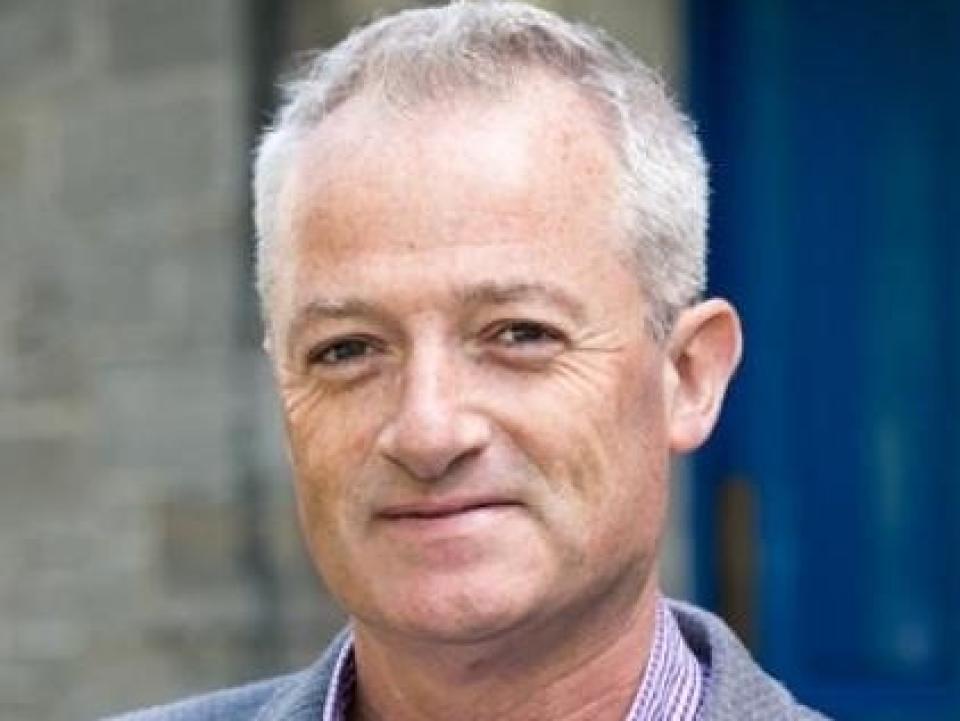
Padraig Murphy
Dr. Padraig Murphy is Assistant Professor at the School of Communications, with research interest in the areas of science communication and science and technology studies. His research focuses on the intersection of cultural responses to science, public participation and Responsible Research and Innovation (with genetic technologies, nanotechnology, future energy and water among specific examples). He is Director of the Celsius research group. Among EC and Irish funded projects in this field on which Dr Murphy was or is PI as part of Celsius include: NUCLEUS, PERARES, OSOS, CASE, RRING, SUPER MoRRI and the Irish GM Potato Community of Inquiry project.
Padraig is interested in supervising masters and PhD theses on: science communication; public participation in, and representations of, science and technology; biopolitics; science argumentation; climate, Anthropocene and society
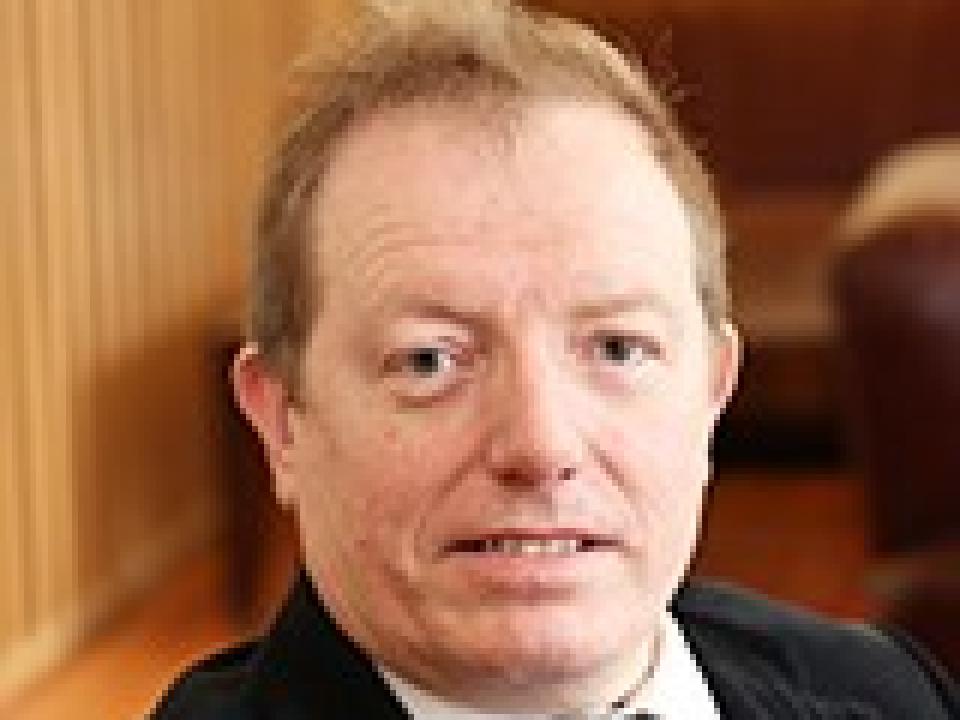
Pat Brereton
Prof. Pat Brereton is formerly Associate Dean for Research of the Faculty of Humanities and Social Sciences. Pat’s research expertise is in film studies and new media literacies. He is particularly interested in media representations of ecology, science, war, religion, new media audiences, media literacy, and national identities.
Pat is interested in supervising masters and PhD theses on: smart cinema, Irish film, ecology in the media, and new media literacies.
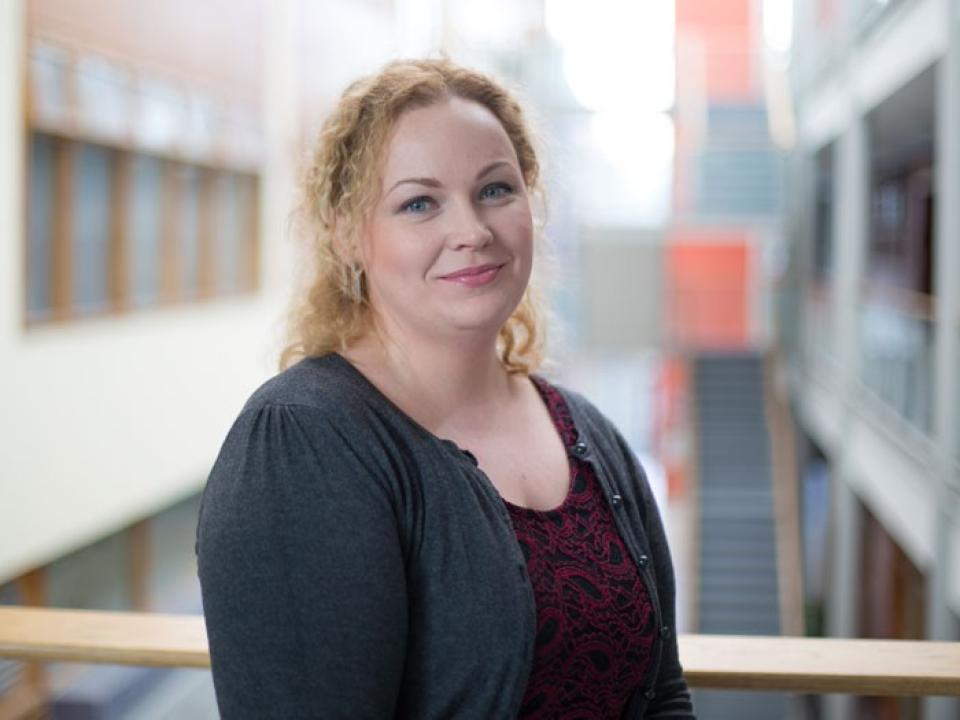
Marie Boran
Marie Boran is an Irish Research Council PhD Scholar and lecturer in the School of Communications.
Marie has an MSc in Science Communication (DCU) and a MScR (Insight, NUI Galway). Her research is on the deliberative qualities and framing of risk in online discourse of artificial intelligence. She lectures on science communication skills on the MSc in Science and Health Communication and in the School of Psychology. Marie is also an award-winning technology journalist and frequently contributes to The Irish Times.
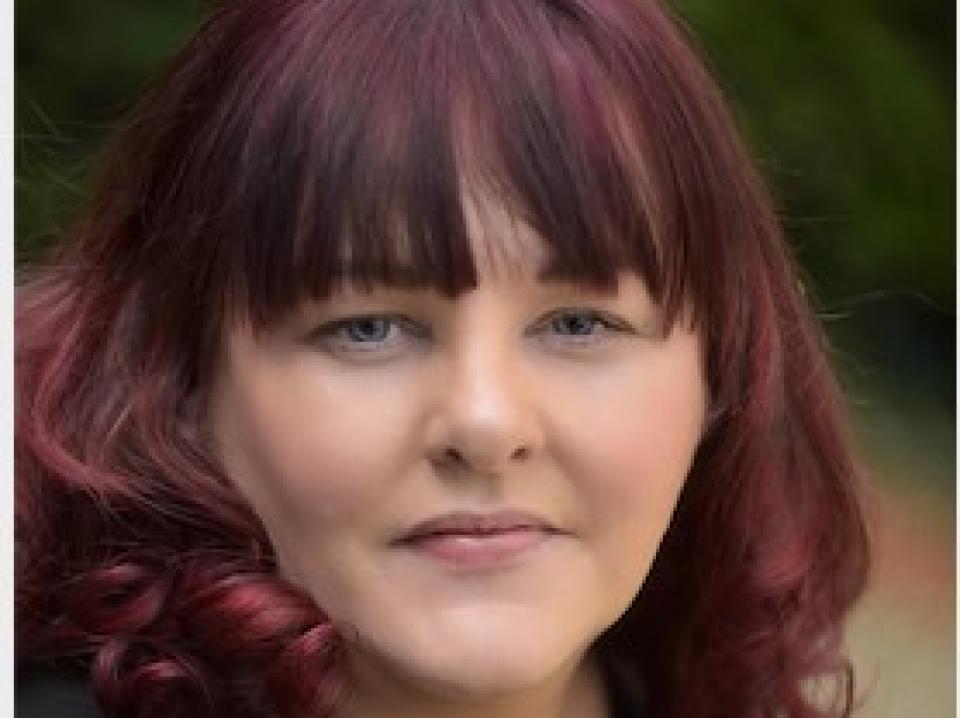
Barbara Gormley
Barbara Gormley is an Irish Research Council Ph.D Scholar and lecturer in the School of Communications at Dublin City University (DCU) where she is a member of the Celsius research cluster. Barbara's current area of research and expertise is in Health/Science Communications; specifically, high risk and crisis that are associated with public health emergencies, namely the H1N1, Swine Flu and SARS - CoV- 2/ COVID-19 pandemics. As well as lecturing across a variety of media, communications and science/health communications disciplines at undergraduate level, Barbara lectures on the MSc in Science and Health Communication at DCU.
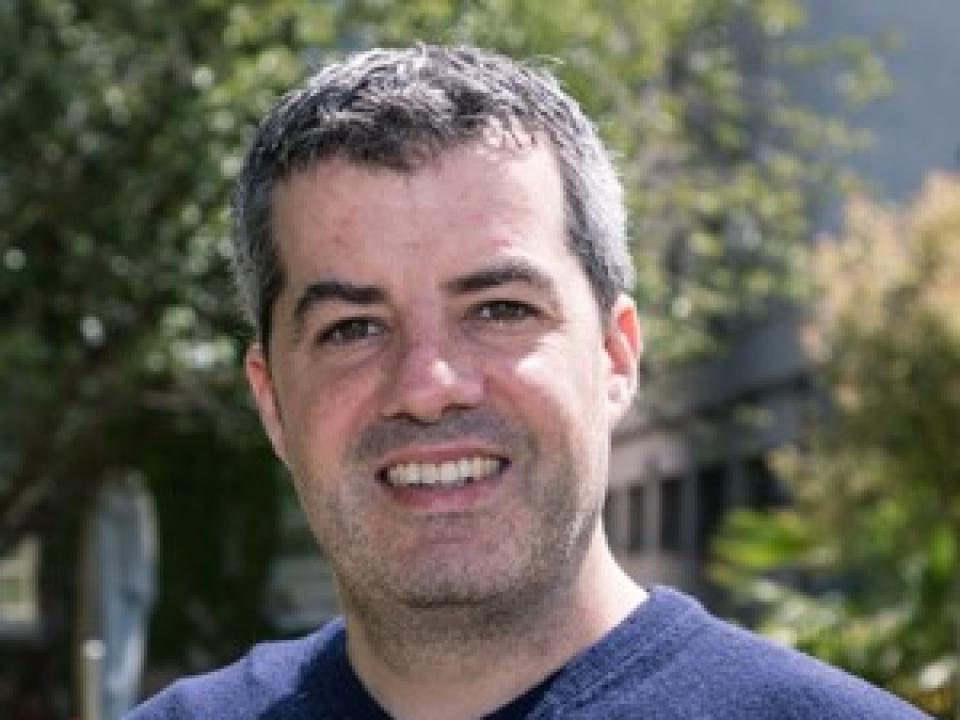
Fiachra Ó Brolcháin
Dr. Fiachra O’Brolchain obtained a BA in Philosophy and English from University College Dublin. Following this, he completed a Masters in Film Studies in UCD. After working in an academic publishing company, he obtained his doctorate from the school of Politics, International Studies, and Philosophy Queens University Belfast in 2009. He wrote his thesis on the patenting of biotechnological products (GM crops) in order to analyse issues of justice in relation to patenting, technology, international trade, and the environment. He has been lecturing History of Ideas and Philosophy of Science in DCU.
He has worked on various aspects of applied ethics, including the ethical and social implications of virtual reality and social networking in association with the EU's Reverie Project, and the ethical implications of human enhancement technologies. He is currently working as a Marie Curie ASSISTID Fellow looking at the ethics of the development, use and distribution of assistive technologies (AT) for people with intellectual disabilities and autism spectrum disorder.
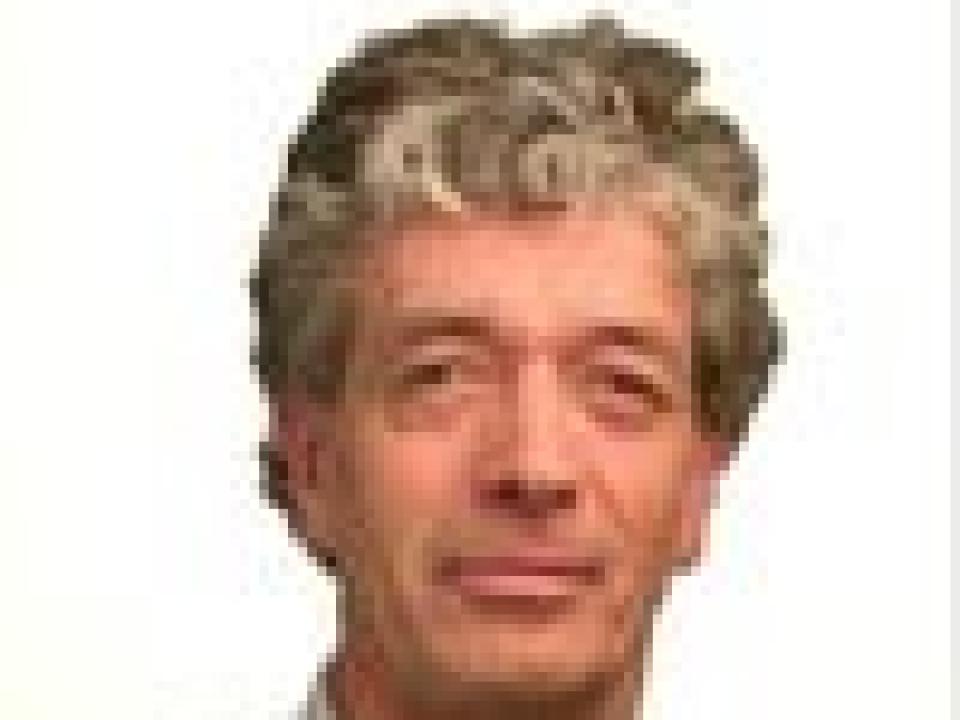
Brian Trench
Brian Trench is a researcher, evaluator and trainer in science communication and a former senior lecturer (retired 2010) in the School of Communications, Dublin City University (DCU). He is also a former Head of School (2002-2007). He was the founding co-ordinator of the Masters in Science Communication and of the Celsius group at DCU.
Brian is the Chair of the PCST global network, which is the main society worldwide for the Public Communication of Science and Technology. He is co-editor with Massimiano Bucchi of Handbook of Public Communication of Science and Technology (Routledge 2008 and 2014) and of Critical Concepts in Sociology: Public Communication of Science (Routledge, 2015).
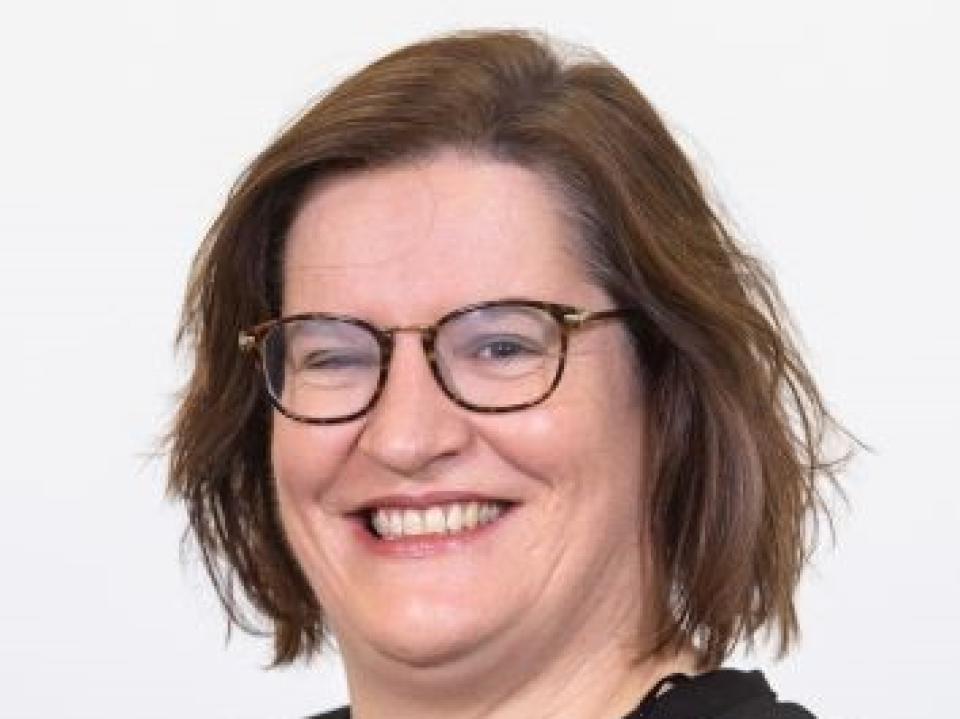
Yvonne Cunningham
Dr Yvonne Cunningham is a research associate in General Practice and Primary Care at the Institute of Health and Wellbeing at the University of Glasgow.
Since joining the Institute of Health and Wellbeing (IHW) in April 2015, she has worked on CRUK and CSO-funded projects about media representations of cancer and lung cancer symptom recognition and help-seeking, a Scottish Government funded evaluation of new ways of working in NHS Ayrshire and Arran, and an evaluation of a volunteering programme operated by the Mental Health Foundation.
Since August 2019 she has been working on a project to investigate the perspectives of health professionals and patients on reducing anticholinergic burden by stopping or switching medications. Her main interests are in qualitative methods and exploring how people engage with media portrayals of health and illness and how these portrayals impact on behaviour.
Dr Cunningham also has a strong interest in public engagement and patient and public involvement in research and is a member of the IHW Public Engagement and Knowledge Exchange Group.
Dr Cunningham previously worked as a part-time lecturer in the School of Communications, Dublin City University and as a science communication researcher, evaluator and trainer.
Dr Cunningham gained a PhD in communications in 2014 for her research about audiences for science on television, and has carried out research on FP-7 funded projects on European audiences for science programmes on television and radio (Audio Visual Science Audiences, AVSA), Monitoring Policy and Research Activities on Science in Society in Europe (MASIS) and Platform of Local Authorities and Communicators Engaged in Science (PLACES). She also works as an evaluator, and has been involved in projects to evaluate the Festival of Curiosity in Dublin, the Science Gallery at Trinity College Dublin and the Science in the City festival run as part of the Euroscience Open Forum held in Dublin in 2012. She has also conducted Celsius research with the Radiological Protection Institute of Ireland (RPII) on research stakeholder and public attitudes to radiation, and facilitated stakeholder mapping processes to identify key influencers for achieving the goals of the National Radon Control Strategy.
Dr Cunningham holds a BSc in Applied Science from the Dublin Institute of Technology and before becoming an academic, spent ten years working as a technical writer, editor and sub-editor in the electronics, financial and educational publishing industries.
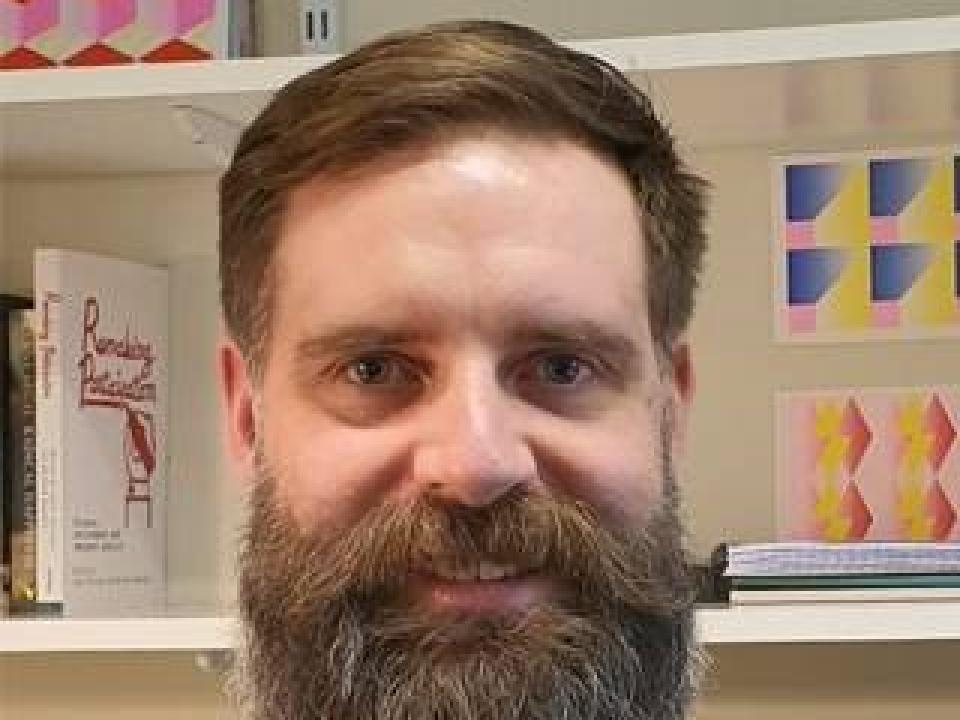
Stephen Hughes
Dr Stephen Hughes is a Teaching Fellow at the Department of Science and Technology Studies at University College London, delivering a Responsible Innovation programme to EPSRC CDT doctoral students across UCL. His research interests are in exploring the intersection of emotion and responsibility in research cultures. Dr. Hughes was an Environmental Protection Agency doctoral scholar as part of the Celsius group completing the project Love Leitrim/hate fracking: the affective technopolitics of environmental controversy in Ireland.
He has also conducted research with Celsius on stakeholder facilitation and citizen jury methodologies on the topics of water infrastructure and supply and the GM potato in Ireland
Founding Celsius members are:
Brian Trench, lecturer in science communication, School of Communications.
Dr Pat Brereton, Head of School, School of Communications
Yvonne Cunningham, PhD researcher, School of Communications;
Dr. Declan Fahy, Lecturer in Science Communication, American University (PhD from DCU, Associate Member);
Diana Kaiser, PhD researcher, Biomedical Diagnostics Institute;
Dr. Eve Merton, (PhD from DCU, Associate Member);
Dr Anne Morrissey, chemical engineer, Oscail, coordinator Sustainable DCU;
Dr Pádraig Murphy, lecturer in science communication, School of Communications
Emma O'Brien, Education and Outreach manager, Biomedical Diagnostics Institute;
Prof Richard O'Kennedy, School of Biotechnology, VP of Teaching and Learning;
Dr Donal O Mathuna, senior lecturer in healthcare ethics, School of Nursing;
Dr Fiona Regan, lecturer in environmental science, School of Chemical Sciences;
Prof Helena Sheehan, lecturer in philosophy and history of science, School of Communications.
Celsius Science // Society Seminars and Symposia
Science in the headlines: communicating Covid-19
Celsius Webinar, DCU 11AM, Fri 13th November
11.00am Event Intro by Padraig Murphy
11.05am How have scientists and public health experts performed in communicating Covid-19?
In conversation: Luke O’Neill, Kim Roberts, Kevin O’Sullivan and Claire O'Connell
11.45am How have the media performed in communicating Covid-19?
Panel Discussion with Maria Delaney, Ida Milne and Cormac Sheridan, moderated by Brian Trench
12.05pm Q&A with participants
12.30pm Event Summary and Close by Barbara Gormley
See a recording of the live webinar here:
Engaged Medicine – case studies of challenges to effective health communication
30th May, 2019, Rooms S206-S209, The Stokes Building, Dublin City University
The threat to the health of the global population is ever-present, and there are multiple complex challenges. Diseases like measles and diphtheria are preventable through vaccines but are still global threats; flu and other pandemics seem inevitable; there is the growing health threat of climate change; and the biggest threat of all remains non-communicable diseases like cancer, heart disease and diabetes. In Ireland, while the health system is criticised, there are local, politicised issues that add to the complexity of communication, like safe and informative abortion provision, cervical cancer screening and HPV prevention. But these also have global dimensions.
Can the health sector engage better with the public and can this improve the health system itself? In this, the twelfth in a series of annual Celsius research group Science//Society seminars at DCU we look at Irish case studies of health communication from a global perspective. The event is sponsored by RRING Horizon 2020 project.
9.00am Tea and Coffee
9.15am Opening
Padraig Murphy, Celsius Group, School of Communications, DCU
9.30am Mis-, dis- or non-communicated controversies in the media?
Paul Cullen, Irish Times
Health journalism case studies
Orla McDonnell, University of Limerick
Framing abortion and medicine as legislative necessity
David Robert Grimes
Misinformed medical science: the case of HPV
11.15am How are patients served by health communication?
Seamus O’Mahony, UCC and HSE
Can medicine be cured?
Lucy Whiston, DCU PPI Ignite
Public Patient Involvement
Enda Saul, HSE
An Approach to Delivering Recommendations 1-4 of Dr Scally’s Interim Report into CervicalCheck'
1.00 Lunch
1.30pm The communication roles of health researchers and practitioners
Barbara Gormley,DCU
Crisis and strategic approaches for population health
and epidemic preparedness
Dónal Brennan, Mater Private
Communication issues with CervicalCheck
2.30pm Health and global challenges: ‘wicked’ communication in the era
of open science and the Sustainable Development Goals
RRING Project
Roundtable
3.00pm Close
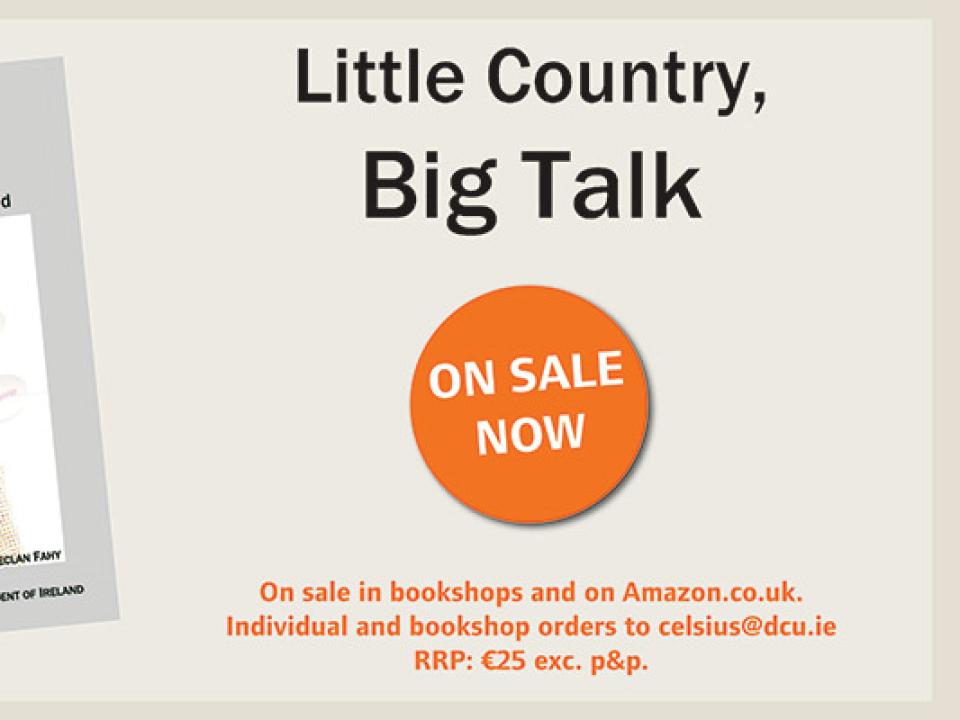
Little Country Big Talk
To mark the publication of a collection of essays and analyses of science communication in Ireland -- Little Country, Big Talk, edited by Brian Trench, Padraig Murphy and Declan Fahy - Celsius hosted a two-part event on Wednesday, 19 April, 2017 at DCU.
From 4pm, a seminar was held with practitioners, policy-makers and researchers in science communication that considered strengths and weaknesses in the field.
From 6pm, a launch and celebration of the book took place on one of the first such country studies anywhere of science communication's development in all its aspects. The book was officially launched by Prof. Brian MacCraith, President of DCU.
Learning and Communicating Science for Global Challenges
Venue: CG86 Henry Grattan Building, DCU
Time: May 5th 2016, 10am - 4pm
9.30 Coffee & Welcome
10.00 – 11.00 Opening followed by
SESSION 1: Connecting science communication and science education
Prof Michael Reiss, Professor of Science Education at University College London Institute of Education, University College London 'Science communication and science education: Identity, conflict or complementarity?'
Prof Danny O’Hare, Champion of Exploration Station the new science learning centre, and Founding President of DCU - 'A National Science Learning Centre'
Chair/respondent: Brian Trench
11.00 -1.00
SESSION 2: Learning anew about science learning - new developments and mechanisms
Aobhinn Ni Shuilleabhain, UCD – Transformative Informal Learning
Jane Chadwick, Science Gallery Dublin, TCD – Connecting Young People to World Challenges
Maarten Van Der Saanden, Delft University – Innovation and Global Science Communication
Eilish McLaughlin and Odilla Finlayson, DCU – Teaching, Learning and Assessing Science – A Global Challenge
Chair: Aoibhinn Ni Shuilleabhain
LUNCH (not provided)
2.00 -3.45
SESSION 3 - ROUNDTABLE: What kind of learning happens through 'education and outreach'?
Sheila Gilheany, Institute of Physics
Shaun O’Boyle, Science Gallery Dublin
Caitriona Mordan, Independent Science Communication Consultant
Alexandra Boyd, Public Engagement & Outreach, UCD
Brian Trench, President PCST: The Network of science Communication
Chair: Padraig Murphy
COFFEE followed by
3.45-4.00
WRAP-UP AND CLOSE
'Please RSVP padraig.murphy@dcu.ie
Communicating Climate Change and Sustainability
Celsius Science//Society seminar,
DCU in conjunction with QUB,
March 5th 2015
DCU Innovation Campus, Glasnevin
*NB This event is not being held at the main DCU Campus. Please click for the map to the DCU Innovation Campus
Abstract
In the two decades since climate change first came to prominence as an issue of public, policy and academic concern, media interest has shifted focus from apocalyptic stories of environmental doom and images of stranded polar bears, to hotly-contested debates about climate science and the so-called ‘Climate Wars’ which cast doubt on scientific knowledge and climate scientists.
Now, with successive IPCC reports highlighting the scientific certainty about anthropogenic climate change and as we approach the deadline for international agreement on carbon emissions at Paris in December 2015, there is greater attention on the wider socio-cultural and political implications of this global challenge. Increasingly, public discussion about climate change involves ideas about climate resilience, climate adaptation or clean energy as well as new technologies and ways of living to assist the transition to future environmental sustainability.
The next phase of understanding the climate change problem raises novel challenges for science, society and communicators. It will require transformations in public policy, practices and expectations of the good life and will involve new ways of thinking about governance, everyday lifestyles, business and innovation. This seminar – a collaboration between Celsius (DCU) and Queens University Belfast (QUB) – explores the possible academic and practitioner approaches to communicating climate change and sustainability. It investigates the potential openings and closures for public engagement with environmental sustainability and climate change and it asks how can communications research from across disciplines shed light on the opportunities and challenges for practitioners and policy-makers. In doing so, it hopes to encourage academic and practitioner conversation across research approaches from both social and physical sciences.
The panel discussions will focus on four themes underpinning the multi-disciplinary ethos of the seminar:
Panel 1: A Weather Eye on Climate Change: Meteorologists Taking the Long View
Panel 2: Communicating Climate Change and Sustainability from the Social Sciences & Humanities
Panel 3: Visualising Climate Change
Panel 4: Communicating Climate Change and Sustainability to Policy
Round Table:
The concluding session, chaired by Professor John Barry, will draw the key themes of the seminar together, with a discussion on Policy, Media, Uncertainty and Complexity
Invited Speakers include:
Professor Ray Bates: Meteorologist
Gerald Fleming: RTE’s longest-serving weather broadcaster
Dr Saffron O’Neill: Social scientist, researching social dimensions of climate change
Dr Cara Augustenborg: Al Gore's Climate Leadership Corps
Dr Julie Doyle: Social scientist, Author, Mediating Climate Change
Professor Barry McMullin: An Taisce; Executive Dean Faculty of Engineering & Computing, DCU
Programme Schedule
Research seminar Panel 1: MORNING
9.15 A Weather Eye on Climate Change: Meteorologists Taking the Long View
Anthropogenic climate change: planetary emergency or long-term threat?
Professor Ray Bates, Meteorology and Climate Centre, University College Dublin
Communicating Climate Change & Sustainability from Meteorology & Weather Forecasting
Gerald Fleming, Weather Broadcaster, RTE
Chair/respondent: Brian Trench, President, Public Communication of Science and Technology
Short Coffee/Tea Break 10.55-11.15
Research seminar Panel 2: MORNING
11:15 Communicating Climate Change and Sustainability from the Social Sciences & Humanities
Framing the IPCC: Media coverage and framing of the Fifth Assessment Report
Dr Saffron O’Neill, Senior Lecturer in Human Geography, University of Exeter
Media & Carbon Literacy: Mapping Irish Media Coverage of Low Carbon Transition
B McNally, PhD Candidate, School of Communications, DCU
Irish Media Coverage of Climate Change: EPA-funded project
Dr Padraig Murphy, Programme Chair, MSc in Science Communication, DCU
Communicating Climate Change: Educational Challenges & Challenges for Education
T Hume, PhD Candidate, School of Politics, International Studies and Philosophy, QUB
‘Whatever You Say, Say Climate Change: Energy scarcity, climate change and the systematic distortion of communication’
W Foord, PhD Candidate, School of Politics, International Studies and Philosophy, QUB
Chair/respondent: Dr Padraig Murphy, Coordinator, Celsius Research Group
Lunch: 1-2pm
Research seminar Panel 3: AFTERNOON
2:00 Communicating Climate Change and Sustainability to Policy
Climate Change Strategy + Human Rights = Climate Justice? Questioning The Mary Robinson Formula
Ben Christman, PhD Candidate, School of Law, Queen’s University Belfast
Local Energy transitions: Lessons from The Gambia
Anne Schiffer, PhD Candidate, School of Politics, International Studies and Philosophy, QUB
Climate Reality: Communicating climate change to the next generation
Dr Cara Augustenborg, Lecturer Climate Change and Environment, University College Dublin
Chair/respondent: Dr Ian Hughes, Innovation Policy Specialist
Research seminar Panel 4: AFTERNOON
3:15 Visualising Climate Change and Sustainability
Imag(in)ing climate: creative conversations and collaborative communications
Dr Julie Doyle, Reader in Media Studies, University of Brighton Faculty of Arts
Environmental Ethics and Film
Dr Pat Brereton, Head of School, School of Communications, DCU
Chair/respondent: Dr Padraig Murphy, Coordinator, Celsius Research Group
Short Coffee/Tea Break 4.15-4.30
Evening Roundtable
4.30 Policy, media, uncertainty and complexity
David Dodd, Research Unit, Environmental Protection Agency
Dr. Diarmuid Torney, Lecturer, School of Law & Government, DCU
Dr Cara Augustenborg, Lecturer Climate Change and Environment, University College Dublin
Dr Padraig Murphy, Celsius
Professor Barry McMullin, Chair of the An Taisce Climate Change Committee
Chair/respondent: Chair: John Gormley, Former Irish Minister for the Environment, Heritage and Local Government
Celsius 2014
Challenges of open science
Eighth science//society symposium
30-31 January 2014
Keynote talk: Alma Swan, Convenor of Enabling Open Scholarship, an international network of universities committed to open scholarship; Director of Advocacy, SPARC Europe (Scholarly Publishing and Academic Resources Coalition), an alliance of academic libraries promoting more open scholarly communication on “Who’s afraid of open access?”
Alma Swan, opened the symposium with her keynote address ‘Who’s afraid of open access?’ She introduced the open access concept, noting that open access to literature and research outputs is crucial to open science. To put open access in context, Swan gave an overview of its history, beginning with the 1666 Proceedings of the Royal Society, then moving on to 1950s CERN, and bringing it up to today’s explosion of journals, research and publishing and the use of online repositories such as RIAN.ie Swan outlined some of the issues which were slowing the pace of open access publishing, including lack of awareness among the research community, the lack of recognition of open access publishing in academic rewards systems and indeed the general slowness of academics to use the web for communication.
Download the slides
Patricia Clarke, Senior Policy Analyst, Health Research Board; Co-chair, National Steering Committee on Open Access on “Open Access publishing: Ireland and abroad”
Patricia Clarke’s presentation followed, she described the work of Science Europe, a policy body, including their survey about open access. Clarke described some models of open access, and Ireland’s policy on same.
Clarke noted that every university in Ireland has a repository, and the next aim is to widen this out to other institutions which do research, such as hospitals, charities etc. Ireland is on a par with Denmark or Portugal regarding political commitment to open access, and that this commitment has driven change in local organisations, for example the HSE and the Department of Food, Agriculture and the Marine have published policies on open access.
Download the slides
Keynote talk: Rick Holliman, Champion for Public Engagement with Research, Open University, UK: on “Towards an open research university—reflections on a programme of institutional change”
Rick Holliman spoke about his work as the Open University’s Champion for Public Engagement with Research. The idea of public engagement with research is to embed ‘openness’ into research generally, Holliman emphasised this by quoting one of his interviewees: “I don't want to be a private intellectual, I want to be public”. This is a disruptive idea and not supported by everyone. Open (public) scholarship makes projects digitally visible and therefore open to criticism and comment. Holliman described how some research—about love, learning disabilities and religion in London—had been opened up.
Holliman went on to describe the work of the National Co-ordinating Centre for Public Engagement, which encourages scientists to self-assess where they are with regards to public engagement, and where they’d like to be. Holliman noted that leadership from above is required in order to make open research mainstream.
Download the slides
Alessandro Delfanti, Research fellow, McGill University, Montreal, Canada; Author, Biohackers—the politics of open science (Pluto Press 2013) on: “High energy papers, open access in perspective.”
Alessandro Delfanti gave an account of his work researching the Journal of High Energy Physics (JoHEP), an online and open access academic journal established by a small group of Italian scientists in the mid-nineties. JoHEP attracted papers from famous physicists and established itself as a journal. Almost a quarter of papers published came from the USA.
Delfanti described the genealogy of open access of high energy physics, from CERN policies to the SCOAP3‘s (Sponsoring Consortium for Open Access Publishing in Particle Physics) (subsidised) gold model. In his interviews with physicists, he found that they did not read journals, as they used the archive instead. Delfanti is exploring scientific communities’ resistance to change, as well as the re-mediation of the journal format and the role of openness in changing science’s institutions.
Download the slides
David Slawson, newly appointed Director of OPAL (Open Air Laboratories), former Head of Plant Health Public Engagement, Food and Environment Research Agency, UK on “Open laboratories and citizen science” Dr David Slawson, the incoming director of OPAL (Open Air Laboratories) opened the second day of the symposium. He described the work of OPAL, and the need for local networks of experts and citizen scientists to carry out projects about biodiversity and climate. OPAL means the research is moving away from universities towards organisations closer to the ground, this means that the net can be spread wider and much more data gathered, Slawson also noted that citizen science surveys need to be carefully designed.
Slawson was joined by a panel of open science / citizen science practitioners including Karin Dubsky of Coastwatch, David McKeown of Science Hack Day, Cathal Garvey of Indie Biotech, and Lynn Scarff of the Science Gallery.
Celsius 2013
Connecting Science and Policy
Seventh science//society symposium
January 24-25, 2013
With Ireland's presidency of the EU in early 2013, science policy has come under almost unprecedented scrutiny. Ireland hosted the Euroscience Open Forum in 2012, drawing in the world's best across many scientific and technological disciplines, and with the hope of leaving a legacy. Also in 2012, a steering group and Forfás set out fourteen priority areas for science in Ireland. As Science Foundation Ireland took on the role of the Chief Scientific Advisor's Office, there have been tensions and anxieties among researchers over the direction of applied and basic research in Ireland. All of this occurs within the context of limited budgets and institutional changes within state bodies in these times of austerity. There are however, solutions to these science policy issues that require collaboration between science, technology and innovation (STI) policy-makers, higher education institutes, and the public. As of early 2013, the Irish Government is developing a science strategy to replace the 2006 Strategy for Science, Technology and Innovation, lead by Minister of State for Research Seán Sherlock. In this context, the Celsius research group at DCU hosted a symposium in the Helix at DCU on 24-25th January 2013. The keynote lecture was by Prof Ben Martin, of the Science Policy Research Unit, University of Sussex. This was the seventh annual science//society symposium hosted by the Celsius group at DCU.
Keynote talk: Professor Ben Martin, Science Policy Research Unit, University of Sussex, on "What can policy-makers learn from science policy studies?"
In this keynote talk, Professor Martin gave a thorough overview of the field of science policy and innovation studies and its development over the past fifty years. He detailed no less than twenty developments in science policy over this period, ranging from the evolution of a dynamic model of innovation from a static one, to the shift from Mode 1 to Mode 2 science, before describing the impacts of these developments on technology and innovation management and STI policy. Martin concluded with some thought provoking questions about the "evidence for evidence-based policy and its benefits to society.
Click here to view slide
Dr Niels Mejlgaard, Centre for Research Policy Studies, Aarhus University, Denmark: Applying science in policy: comparisons across Europe
Dr Niels Mejlgaard presented results from the EU-funded Monitoring Policy and Research Activities on Science in Society in Europe (MASIS) project. The output of this project was a database about science in society issues across 37 EU and associated countries. Mejlgaard used this to group countries in terms of their use of science in policy-making, models of public involvement in science and technology decision-making and science communication culture. Mejlgaard concluded by noting that the heterogeneity of cultures poses a challenge to the promotion of shared European research policies, development of an ERA, and a common model of science in society.
Click here to view slides
Prof Kirk Junker, University of Cologne, Germany: EU-US comparison of environmental science policy implementation through law
Professor Junker began his presentation with an explanation of the comparativist method and a rationale for his use of it, before moving on to compare common law and civil law systems with regard to environmental law (and policy). He gave an engaging explanation of the two systems and concluded by focusing on the Irish and UK situations, which are caught between the two systems-on the one hand having a common law (i.e. legislation by litigation) tradition and on the other hand a Trojan horse from Brussels bringing in science policy through rationalism.
Click here to view slides
Dr Séamus Ó Tuama. Department of Government, University College Cork: Expert-lay relations in the policy process
Dr Séamus Ó Tuama presented a case for expert-lay relations in the policy process, emphasising what he termed "an old-fashioned idea" of the common good. He argued that lay people should be more involved in important decisions, noting from Neil Mejlgaard's presentation that this is not happening in Ireland. Ó Tuama went on to reference several scholars (Jasanoff, Aronowitz, Frankenfeld, Bohman) to justify his position : for real lay engagement with decision-making about science to occur, three key requirements must be met: initiative, participation and bindedness—a term he coined himself, which means that decisions that publics make need to be binding.
Click here to view slide
Professor Fredric Adam, University College Cork: European practices in technology assessment
Professor Adam spoke about Parliamentary Assessment Technology (PTA) as a means to connect politics, science and society in making well-informed unbiased decisions. He grouped countries in terms of whether they carried out PTA or not and in terms of the different models of PTA used. Adam concluded by noting that Ireland focuses on science and economy while largely ignoring the relationship between science and society, and by calling for Ireland to address an impoverished engagement model through increasing the capacity of policy-makers, industrialists, scientists and citizens to engage on questions of science.
Click here to view slides
Brenda McNally, PhD candidate, Dublin City University: Environmental sustainability and the social script.
Brenda McNally presented on her PhD research on how public discourses about environmental sustainability are shaping how people see their roles in transitioning to a low carbon future. She outlined her plans to carry out a qualitative analysis of discourses in Irish broadsheet newspapers and to triangulate this with secondary research on public perceptions on climate. This work will add Irish data to a growing international field of research.
Click here to view slides
Laura Sexton, PhD candidate, University College Cork: Ireland's knowledge economy policies.
Laura Sexton's talk was about her research into the beliefs and drivers of Ireland's knowledge economy. As part of her on-going PhD research, she has interviewed public servants, politicians, as well as professionals from the corporate sector, education, and media. She has found that politicians support the knowledge economy idea, though they see it as a business rather than as an education policy; however the main drivers for the policy are public servants (influenced by politicians).
Click here to view slides
Mary O'Regan, PhD candidate, Tyndall Institute, University College Cork: Securing support for large-scale research facilities
Mary O'Regan presented on her PhD research about whether Ireland should present as a possible location for Big Science. She outlined the importance of champions for Big Science and explored some strategies that Ireland could use to engage in the area. She went on to give some ideas of possible projects that Ireland could engage in such as a global research centre in marine science.
Click here to view slides
Diana Smith, PhD candidate, Dublin City University: Science communication as 'outreach'
Diana Smith looked at definitions and instances of science outreach in Ireland as it is represented on institute websites. She presented an investigation of who is involved, the purpose of involvement, and its relation to other forms of outreach. Her research problematizes the way science is represented, what audiences are addressed, and the 'outsourcing' of science outreach to science communication professionals. She concluded by suggesting that these issues be addressed by running longer and more authentic programmes.
Click here to view slides
Chairs: Dr. Norah Campbell and Dr. Joanne Rourke, Trinity College
Dublin, and Brian Trench, DCU
Celsius 2012
Debates
Celsius 2011
Interdisciplinary Experiences – Collaborations and Collisions
Sixth annual Celsius Symposium on Science and Society, The Helix Gallery, Dublin City University, Friday 10 June 2011
9.00 – 11.00 Interdisciplinarity and Pedagogy
Lynn Scarff (TCD Science Gallery): The Future of Water – the Idea Translation Lab
James Lovatt (DCU School of Education Studies): Developing a module in Interdisciplinary Science
Richard O’Kennedy (DCU Vice-President for Learning Innovation): Science in the courtroom – forensics, role-play and undergraduate education
Brian Trench (DCU School of Communications): Science communication – the evolution of a new academic subject
Chair: Marguerite Barry, DCU
11.00 – 11.30 Coffee break
11.30 – 1.00 Synergies between disciplines
Pat Brereton (DCU School of Communications, Associate Dean of Research for the Faculty of Humanities and Social Sciences) and Stephen Daniels (DCU School of Electronic Engineering): New research approaches for sustainability
Enrico Marsili (DCU School of Biotechnology) and Padraig Murphy (DCU School of Communications): A dialogical life cycle approach for nanotechnology?
Siobhan O’Sullivan (former scientific director, Irish Council for Bioethics, and member, European Group on Ethics in Science and New Technologies): Research ethics and bioethics – where disciplines meet
Chair: Juliana Adelman, TCD
1.00 – 2.00 Lunch
2.00 – 3.15 Keynote address
Brian Wynne (Lancaster University): The roles of publics and science in the governance of food biotechnology
Chair: Padraig Murphy
3.15 – 4.00 Concluding session
Chair: Brian Trench
4.00 Reception
Summary report of the sixth annual Celsius science-in-society symposium held in Dublin City University on 10th June 2011
The keynote speaker at this year’s symposium was Brian Wynne, professor of science studies at the University of Lancaster, author of numerous papers and books on social issues in science and technology, and participant in many European and British research projects and policy advisory groups. Prof Wynne addressed governance of food biotechnology, mainly from the perspectives of global food production, biodiversity and the lay knowledge of local farmers. He tracked developments in British and European policy in this arena, noting that the publicly stated position of the European Commission on environmental risk associated with genetically modified crops was at odds with the Commission’s unpublished submissions to the World Trade Organisation on the same topic.
In an interesting aside, Prof Wynne remarked that much commentary on the critique of the deficit model in science communication, of which he was the first (and is still the most frequently cited) voice, had misrepresented his view as a critique of the notion that publics have deficits of knowledge. Earlier, Lynn Scarff of the Science Gallery at Trinity College Dublin described a university-level module open to students of all disciplines in which they work in teams to develop ideas for possible products and services, this year addressing issues in access to and quality of water.
James Lovatt (School of Education Studies, DCU) reported the experiences of colleagues in Chemical Sciences and Physical Sciences in delivering an interdisciplinary science module to first-year students. Using a scenario involving social and ethical issues students learned skills of argument and presentation but also – as they acknowledged – learned significant science content also.
Prof Richard O’Kennedy, DCU’s Vice-President for Learning Innovation, presented his experience of teaching a final-year course in biotechnology using forensic problems to engage the students and to teach them about presenting scientific evidence in legal and social contexts.
Stephen Daniels (Energy Design Lab, DCU) and Pat Brereton (school of Communications, DCU) recounted their developing collaboration around public perceptions and behaviour on energy issues that is leading to a “true cross-disciplinary research agenda”. A new PhD studentship will be located across the two disciplinary areas.
The focus of the collaboration between Enrico Marsili (School of Biotechnology, DCU) and Padraig Murphy (School of Communications, DCU) is on nanotechnology as a fast-growing field that invites interdisciplinary and dialogical approaches to its social assessment. These two researchers, from different disciplines, described new ways of approaching local/global interactions with various local community representatives, connecting wider ‘”macro” themes and debates of sustainability to ‘micro’ green tech innovation processes. There were “language” issues, they reported, due to the various fields of expertise in public engagement workshops.
Brian Trench (School of Communications, DCU) offered some reflections on different modes and degrees of interdisciplinarity and used the example of science communication’s growth worldwide to show risks and benefits associated with interdisciplinary experiences. Students’ common observation of feeling “more rounded” through exposure to various disciplinary perspectives represented the intrinsic value of interdisciplinarity, he said.
The Celsius group wishes to acknowledge the support of the Office of Vice President of Researchand the Office of Vice President of Learning Innovation for the hosting of this event.
Celsius 2010
Celsius held a workshop on the theme, Sustainability - where science and society meet, at DCU on 29th January 2010. Contributors to the workshop looked at sustainability from environmental, sociological, scientific, philosophical and ethical perspectives. This was the fifth event in a series of annual seminars and colloquia on science in society at DCU.
The workshop aimed to explore understandings of a concept that is increasingly used as a keyword of public policy and institutional strategy. In particular, it looked at the social sustainability as a complement to the more usual notion of sustainability as minimising harm to the environment and minimising future hazards or risks.
A public panel discussion that was part of the day's programme focused on climate change and renewable energy. Prof John Sweeney, of NUI-Maynooth and the Intergovernmental Panel on Climate Change, argued that climate change deniers and sceptics were winning the communications battle and scientists in the field needed to improve their public debating skills. Dr Stephen Daniels, of the National Centre for Plasma Science and Technology at DCU, reviewed some of the scientific and technical challenges of developing renewable energy resources on a much larger scale. Prof Owen Lewis, chief executive of Sustainable Energy Ireland, emphasised what could be achieved, including mitigating climate change, by greater energy efficiency.
Earlier, Dr John Barry, associate director of the Institute for a Sustainable World at Queens University Belfast, spelled out the challenges of sustainability to academia, emphasising the need to go beyond the usual disciplinary boundaries. Dr Dónal O Mathúna, a healthcare ethicist in the School of Nursing, DCU, examined various applications and understandings of the precautionary principle.
Dr Shane Colgan of the Environmental Protection Agency outlined the scope and purpose of the agency's research programme. Dr Fiachra O Brolcháin, who lectures in philosophy of science in the School of Communications, DCU, set out a 'capabilities approach' to GM crops under which greater social benefits would accrue from their use through reform of the intellectual property regime.
Ciara Aucoin, of VOICE of Irish Concern for the Environment, described the role of NGOs in mediating science to society. Dr Hilary Tovey, of Trinity College Dublin, suggested fundamental questions about ownership and use of natural resources may underlie resistance to wind farms.
Dr Shane Colgan of the Environmental Protection Agency outlined the scope and purpose of the agency's research programme. Dr Fiachra O Brolcháin, who lectures in philosophy of science in the School of Communications, DCU, set out a 'capabilities approach' to GM crops under which greater social benefits would accrue from their use through reform of the intellectual property regime.
Ciara Aucoin, of VOICE of Irish Concern for the Environment, described the role of NGOs in mediating science to society. Dr Hilary Tovey, of Trinity College Dublin, suggested fundamental questions about ownership and use of natural resources may underlie resistance to wind farms.
To close the day's programme, Dr Massimiano Bucchi from University of Trento, Italy, argued that consensus may not be achievable on new technologies in complex, pluralist societies and Dr Padraig Murphy, from the Celsius group, outlined some findings on public engagement with nanotechnology and the possibilities of including publics in technology assessment.
Celsius 2009
A two-day symposium on cultural, political, ethical and other social interactions around new sciences and emerging technologies took place at Dublin City University on 22-23 January 2009. The symposium was hosted by the Celsius research group and was the fourth in a series of annual meetings at DCU on science-in-society issues.
Prof Alan Irwin, Copenhagen Business School, New sciences, new risks, new science governance
In his opening presentation, Alan Irwin drew attention to the emphasis in EU science policy on competition and innovation in the knowledge economy. These emphases, like that on risk, were reshaping the social role of experts, Irwin argued. Sketching the changing models of science governance, he said "the public" seemed to have a bigger role in the current models, but policy-makers had a limited view of the public, either focused on extremist views or on the media.
Prof Mark Brake, University of Glamorgan, Wales, Nuclear power, before it was new
In a session that offered two views on nuclear energy, Mark Brake went back to the early 20th century and to the writings of H G Wells in order to demonstrate how literature was a significant site for the negotiation of new sciences. Wells, he said, could be considered the inventor of the atom bomb, and certainly his literary speculations were known to the physicists who did devise the weapons used in 1945. Many other science fiction authors, through the 20th century, had explored the military applications of nuclear energy and the possible effects of the use of nuclear arms.
Physicist Miles Turner described nuclear fusion as a "renewed science", but one that required internationally co-ordinated political decision-making for its potential to be realised. While energy production from nuclear fusion remained far from commercial at present, the scientific and technical issues were less than the political issues. The international ITER programme may cost �30 billion and take to 2030 to produce a reactor that produces ten times more energy that it consumes. A commercial prototype reactor may be ready by 2040.
Prof Dietram Scheufele, University of Wisconsin, USA, How publics make sense of nanotechnology
Dietram Scheufele also touched on political and commercial contexts in his presentation on public attitudes to nanotechnology. But his pre-recorded video talk focused on the relation between citizens' "religiosity" and their attitudes to nanotechnology and to its moral acceptability. His study matched the average ranking in selected countries of the importance of god in individuals' lives with the responses to surveys on nanotechnology.
View presentation online by saving and opening in a chosen movie player
http://nanosoc.wisc.edu/dublin09/Dublin%20%28with%20video%29.mp4
Dr Padraig Murphy, School of Communications, DCU, Discourses and discourse sites of nanotechnology
Continuing on nanotechnology, Padraig Murphy presented an outline of the "discourse sites" he had identified as distinct arenas of public communication around this new science and its health and other social implications. He questioned whether the framing of nanotechnology could be shared across sites.
Biological applications of nanotechnology that raised ethical issues featured most prominently in a presentation on fiction films by Donal O Mathuna and Pat Brereton. Taking a small number of recent films as examples, they discussed how the films' narratives might be considered a negotiation of the possibilities of bio- and nanotechnology.
Public attitudes to these new sciences have been the subject of many national and international surveys, and Suzanne de Cheveigné asked how much could be learned from the long series of Eurobarometer surveys about Europeans' attitudes to these and other new sciences. The surveys assumed that all individuals have information, opinions and attitudes on the topics, although it is not clear, she claimed, that they do, or even that they should have. Other issues concerning these surveys included the form and content of some questions, inconsistent translations, and the questionable proposition that the various views in a country can be averaged to present a picture of that country.
Brian Trench, School of Communications, DCU, New sciences in a "new country" - the Irish paradox
Brian Trench, New sciences in a ‘new country’ (powerpoint presentation)
Brian Trench presented a case for seeing Ireland as a "new country", in which all science is more or less "new". Having discussed briefly Irish ambitions for S&T, he examined evidence from 15 national and international surveys for public engagement with this policy. Despite the turn to science, the Irish population shows itself, over 30 years of European surveys, as among the least attentive to or interested in S&T among EU member states, but also the most open to answering "don't know".
Prof Bert Gordijn, Ethics Institute, DCU, Ethical issues in tissue engineering
Bert Gordijn took the case of tissue engineering to illustrate how a model for prospective ethical analysis of new sciences might be developed, based on considerations of the value of the goals of the research, the contribution of continuing research to reaching those goals, and the avoidability or justifiability of any ethical problems. Gordijn noted that some of these ethical problems were large, such as those relating to the moral status of the embryo, but he suggested that interdisciplinary research groups could engage in ethical reasoning around them.
Drawing on work done in New Zealand and Britain, Fiona Coyle explored how publics have made sense of the "politicised" science of stem cell research. The studies presented sought to capture something of people's everyday talk on such an issued, and demonstrated the emotional ambivalence of many participants, but also the influence of specific and personal contexts on the positions taken.
The participation in the symposium of several international speakers was made possible by a conference grant from the DCU Office of the Vice-President for Research. A conference dinner was provided courtesy of the DCU Foresight Unit.
